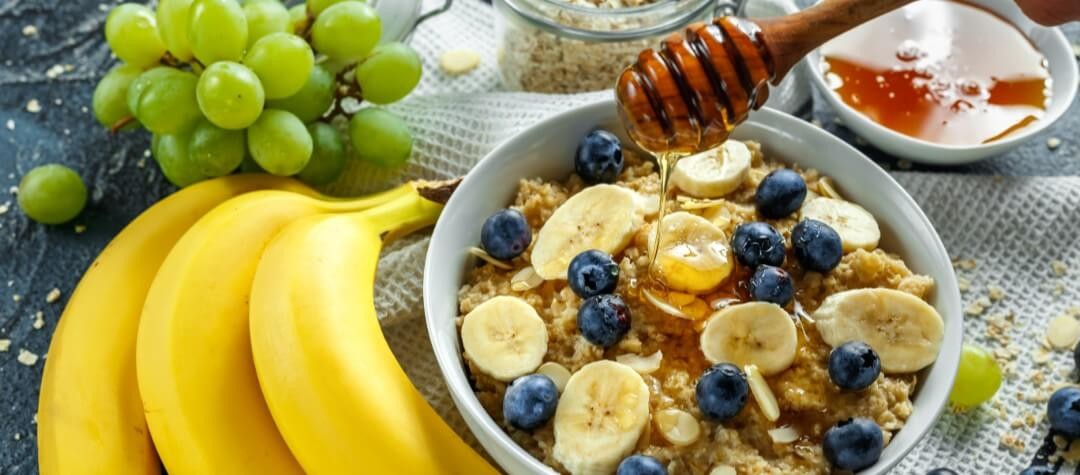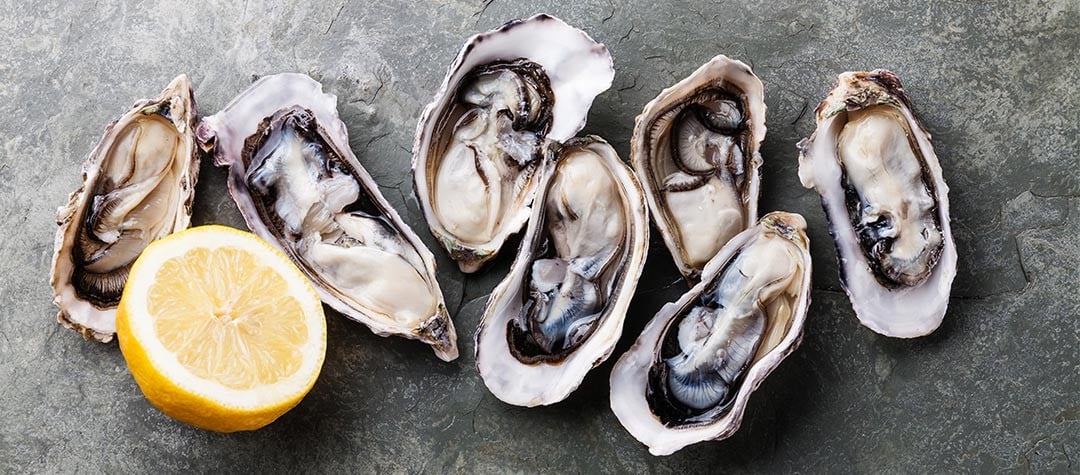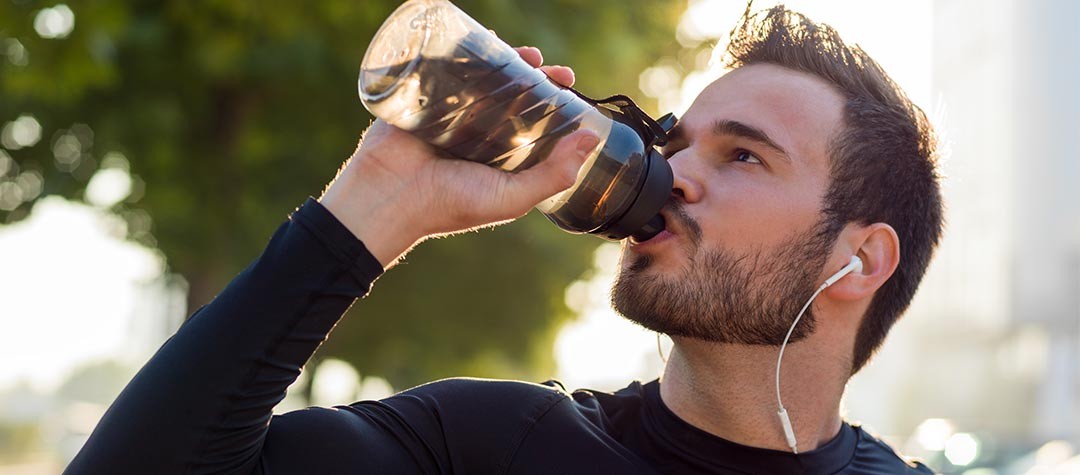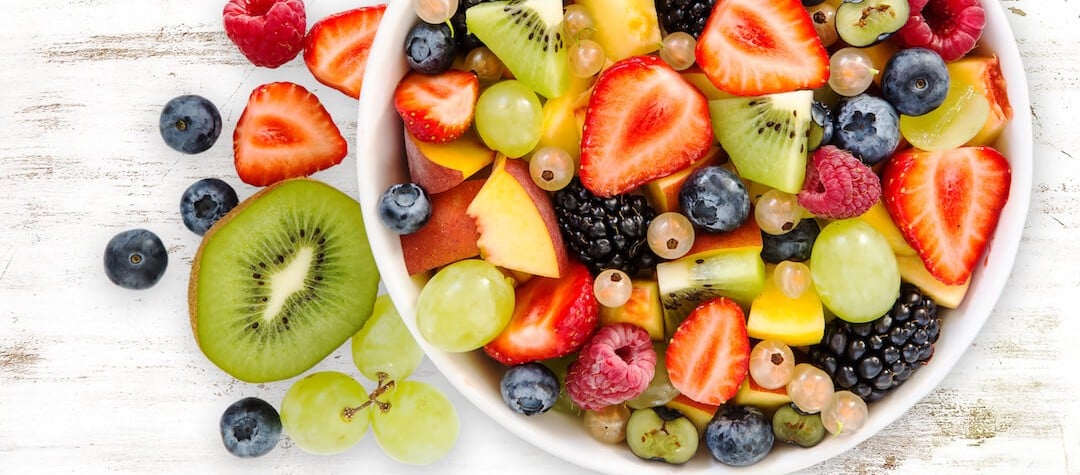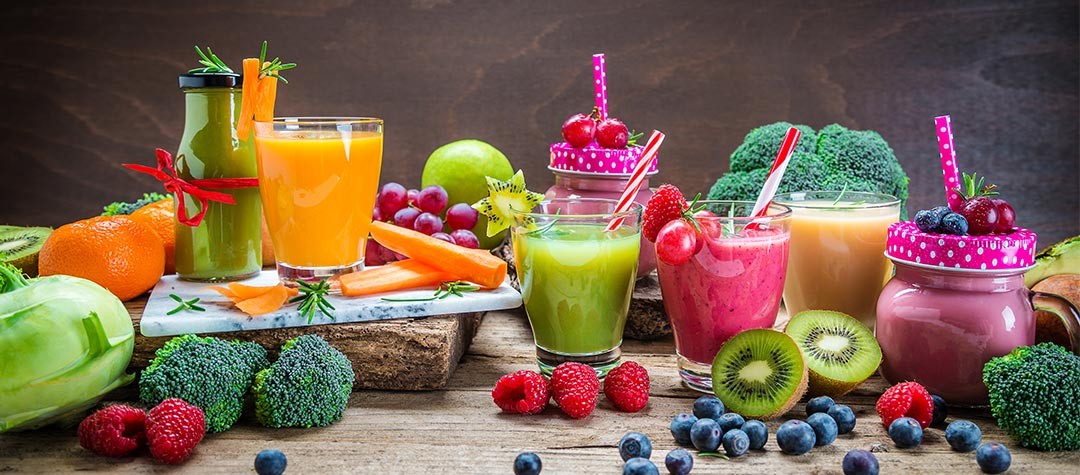A snack prior to a workout is a great way of topping up your energy requirements. Find out which snacks are ideal pre-workout.
Making sure your body is fully fuelled and ready to exercise before a workout is not always an easy task. Pre-workout snacks can serve as a useful provision for your body of its needed fuel without overloading your digestive system.
When exercising your body needs fuel for movement, this fuel is energy sourced from the food we eat, and so providing the body with enough fuel requires eating appropriate foods that will provide substantial energy for your workout. The body uses three main groups as energy; carbohydrates, fats and proteins.
The body uses three main groups as energy; carbohydrates, fats and proteins.
Most easily broken down, and providing the richest source of energy, carbs are the ideal foods to source your body with the fuel it needs for exercise. Once exhausted its sugar stores, the body will use fats and protein for fuel, but as these elements can be difficult to breakdown and are needed for other functions in the body, therefore important to ensure a rich supply of carbs are available to sustain you through your workout.
Ideally you should eat a meal around 2 or 3 hours before a workout and then refuel with a smaller meal or snack in the hour preceding a workout, to ensure substantial nutrients available. However busy schedules do not always allow for such plans, and so it is important to ensure the food eaten before a workout, whether first thing in the morning or later in the evening, are a rich source of energy and nutrition, ideally around 30 minutes before a workout.
1. Bananas & other fruit
Whether by itself, dried, with spreads and yogurts or even in a bar, fruit is a useful pre-workout snack, easily available on the go or as a more substantial snack, holding abundant energy and nutrient value. Bananas particularly are considered nature’s energy bar, filled with complex carbohydrates, ideal for energy whilst working out, and packed with potassium which aids muscle and nervous system function. This potassium can prevent any potential damages to the muscle and prevents cramps during exercise.
Bananas particularly are considered nature’s energy bar...
If you are struggling for time before a workout, you should replace any protein with carbs, as proteins take a longer time to digest and could lead to indigestion or cramps. Fruits such as berries, grapes and even dried fruit contain a large portion of natural sugars, i.e. carbohydrates which can be substituted for proteins.
Fruits are simple carbs, digested in the small intestine rather than the stomach, they offer an immediate source of glucose, delivering an instant but sustained energy boost. The brighter the berry the better, providing more sugar for energy and more nitric oxide to expand the blood vessels, providing a better workout.
Dont like the taste, texture or even just bored by certain fruits, no problem. Fruit smoothies are an excellent way of topping up carbs and energy before a workout. Combining a variety of fruits to provide a tasty, but refreshing addition of not only carbs but water for hydration. An extremely efficient way of proving the vital components needed for exercise, smoothies can be an interesting twist to any old piece of fruit, and when combined with milk or yogurt, can provide a healthy source of protein as well.
2. Oats
When working out in the morning oats are an effective way to start your day and workout well, oats particularly steel-cut, have a low glycemic index, releasing energy at a slower rate, enabling you to exercise for longer time. Oats also contain a high amount of vitamin B which assists the conversion of carbs into energy, proving useful for the access of energy.
Oats also contain high amounts of fibre which in some foods can make you sluggish, bloated and reduce exercise productivity, but the fibre oats provide can further assist the release of carbohydrates. Particularly useful in the morning when exhausted of your energy stores through the night, oats provide a tasty and filling method to provide a valuable source of sustainable energy.
Oats can also be easily combined with other foods that contain carbs, considerably adding to your energy source; fruits, honeys, milk and yoghurt are all tasty tips to combine with oats. These serve as not only a satisfying breakfast or snack, but a rich source of carbs, proteins and nutrients, all vital within exercise.
3. Wholegrain bread
If oats and fruit don't provide you with enough satisfaction or fulfillment, bread can serve as a useful alternative to provide a rich source of nutrition. Packed with carbs , bread is an important food when lacking in energy and in need of something quick and easy to eat and prepare. Topped off with spreads such as peanut butter, jam, honey and so on, or combined with eggs or vegetables, breads hold a variety of options, easily made and cheaply bought to provide not only variety, but a valuable source of energy for your workout.
Sticking to sourdough, whole wheat and grain breads will ensure a steady production of energy, keeping energy levels high for a more sustainable length of time.
There are some breads however you should stay away from generally, not just before exercise; white breads, baguettes and bagels all have a GI index of over 70, considered relatively high. These will release energy more quickly leaving you fatigued, affecting your ability to perform over a longer period of time. Sticking to sourdough, whole wheat and grain breads will ensure a steady production of energy, keeping energy levels high for a more sustainable length of time.
4. Eggs
Eggs and egg whites are ideal for those trying to build muscle particularly, but the benefits of eggs before workout can be felt by anyone. Eggs have the highest bioavailable proteins and so used more quickly by the body than any other protein products. Egg whites from a single egg can provide around 4g of protein and no fat, when trying to lean up or lose weight, eggs are helpful in utilising the benefits of exercise, particularly weight training.
Ideal as a morning or afternoon snack, by itself or with other foods such as breads and vegetables, eggs are a useful addition to your diet, easy and quick to cook, padding out your nutrition with rich protein and nutrients. Whether muscle training is an aim of your workout or not, protein is vital in any diet for the restoration of muscle and tissues used in any form of exercise, and eggs are an easy solution to any missing protein from your diet.
5. Yogurt and Spreads
When alone yogurts and spreads can be rather unappealing, though when combined with a variety of foods, serve as a useful source of nutrients and energy. Products such as greek yogurt, peanut butter, almond butter, honeys and jams provide a rich source of natural sugars and proteins, key for any workout and recovery . Greek yogurt contains double the protein but half the sugar as regular yogurt, providing the needed source of nutrients for energy and muscle repair used through the course of exercise.
Spreads like almond and peanut butter not only provide the ‘good’ fats commonly associated with them, but also serve as a rich source of protein.
Spreads like almond and peanut butter not only provide the ‘good’ fats commonly associated with them, but also serve as a rich source of protein. The natural fats and sugars found in spread serve as a good source of energy when carbs are exhausted, preventing your body from burning lean muscle as fuel.
These types of foods can be combined with a variety of products offering a mixed and balanced snack nutritionally, providing a spectrum of nutrients and minerals used throughout your workout. These products can also liven up typically boring foods that provide nutrition, but leave little excitement for the tastebuds; peanut butter and apples, yogurt with granola and fruit, honey over bananas and fruit, all easily made that not only fuel your workout but, can be a tasty alternative to your regular diet.
What to avoid?
Some foods however can have negative effects on your workout, overloading your digestive system with heavy foods or eating high GI foods that release energy too quickly can seriously affect your workout. High sugar foods, specifically artificial sugars, will result in a sudden release of energy followed shortly by a sugar crash, this leaves you with little energy and lots of fatigue hindering your ability to workout.
High fat foods such as fast foods, will also impact your workout, taking up to four hours to digest, high fat foods will sit like a stubborn block in your stomach. The blood rushes to your stomach to encourage digestion, decreasing the flow to muscles, affecting your movement and efficiency during your workout.
Working out on an empty stomach can also affect your exercise capability as glycogen stores are exhausted making exercise harder and slower, it is important to always grab a small bite before working out, even if only some fruit or yogurt, it is better than nothing.

